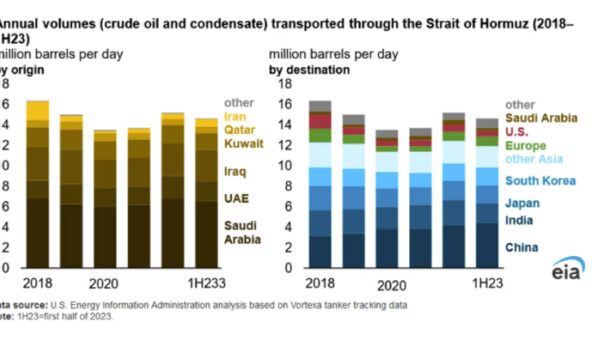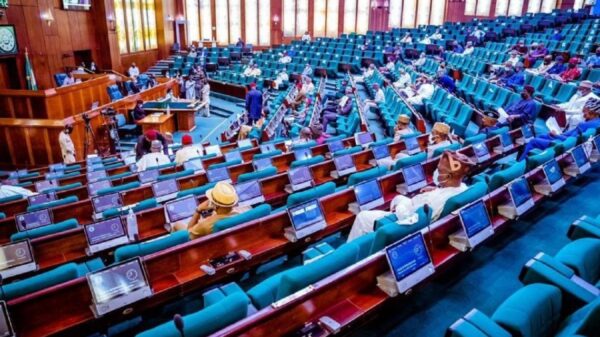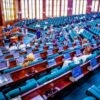In a recent development, the Nigerian Senate gave the nod for the second reading of a bill aimed at amending the 2007 Central Bank of Nigeria (CBN) Act. This move has stirred discussions, with Senator Adok Kumba Abiru shedding light on the proposed changes during the session.
One key aspect of the amendment involves establishing a Coordinating Committee to align monetary and fiscal policies. However, this proposal has raised concerns, especially from experts like Chika Mbonu, an esteemed business analyst.
In this article, we’ll delve into the key points of the bill, analyze its potential implications, and discuss why it’s crucial to keep politicians away from meddling in CBN affairs.
The Coordinating Committee Conundrum
Senator Abiru emphasized the creation of a Coordinating Committee to better align monetary and fiscal policies. However, Chika Mbonu raises a red flag, pointing out that the fiscal side is typically managed by politicians, while the monetary policy side falls under the jurisdiction of the Central Bank.
Mbonu argues that introducing politicians into the process may lead to conflicts of interest, as politicians often prioritize short-term gains for electoral success. He stresses the historical success of past collaborations between competent Central Bank Governors and Finance Ministers without the need for additional legislation.
The Tenure Debate
Another notable point in the bill is the proposed extension of the CBN Governor’s tenure from five to six years. The rationale behind this change is to prevent lobbying for a second term, promoting a singular focus during the extended tenure.
Mbonu questions the necessity of this amendment, suggesting that the focus should be on appointing independent-minded and competent CBN Governors. Drawing a parallel with international experiences, he highlights instances where competent central bankers operated independently of political pressures, ensuring effective economic policies.
Compliance Officer: A Step in the Right Direction
Mbonu acknowledges a positive aspect of the proposed amendments – the introduction of a compliance officer. This officer would report directly to the board of directors while being accountable to legislators.
This move is seen as a step towards transparency and accountability, reflecting a proactive approach to addressing issues within the CBN. Mbonu expresses support for this addition, recognizing the importance of maintaining financial discipline and adhering to existing laws.
Implementation Over Legislation
Mbonu contends that Nigeria’s challenge lies not in a lack of laws but in the diligent and sincere implementation of existing ones. He highlights instances where laws, such as the requirement for the CBN to present financial statements to the National Assembly, have not been consistently enforced.
Mbonu argues against the knee-jerk reaction of creating more laws, emphasizing the need for a thorough and efficient implementation of current legislation.
The Menace of Money Laundering through Banks
Shifting gears, Mbonu addresses the issue of money laundering through banks, specifically referencing the statement by the CBN Governor regarding $26 billion in and out of the banking system within a year.
He stresses the need for vigilance and a crackdown on financial crimes, citing recent international cases where banks faced hefty fines for similar offenses. Mbonu suggests that the focus should be on strengthening regulatory measures and enforcing existing laws to curb illicit financial activities.
The Crypto Conundrum
Touching upon the rise of cryptocurrencies, Mbonu acknowledges their attractiveness but warns against their potential misuse by criminals. He cites instances where the crypto environment has facilitated money laundering and fraud.
Despite the appeal of these digital assets, Mbonu urges caution and the necessity of robust regulatory frameworks to prevent abuse.
Prioritizing Competence and Implementation
Chika Mbonu emphasizes the importance of appointing qualified, competent individuals to key positions, such as CBN Governors. He contends that focusing on competent leadership, rather than creating more laws, is the key to effective governance.
Mbonu urges policymakers to prioritize the diligent and sincere implementation of existing laws, fostering an environment conducive to economic growth and stability. As the bill progresses to a public hearing, Mbonu’s insights serve as a reminder that thoughtful, effective governance is the linchpin for Nigeria’s economic success.
























































You must be logged in to post a comment Login